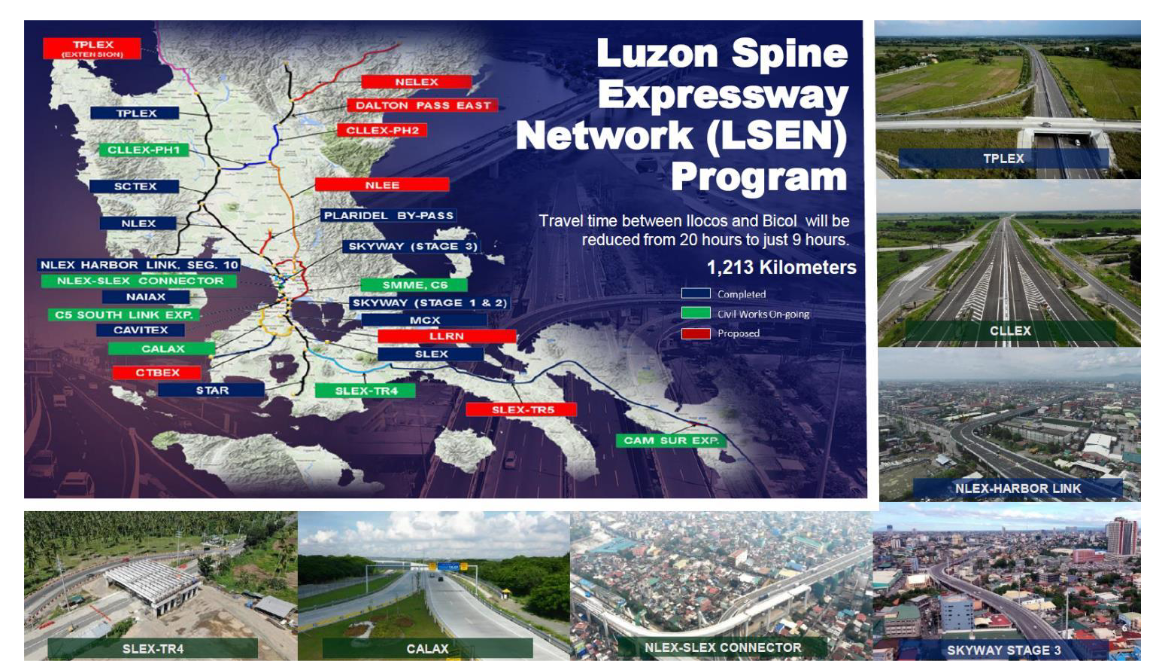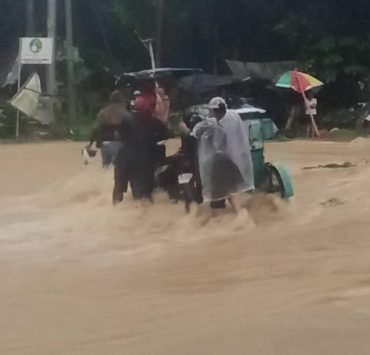Collier’s Review: SONA wishlist for Philippine property

The government’s infrastructure program will help dictate the development strategies of property firms especially those eyeing new growth areas outside established hubs.
For this week, I am highlighting some of the measures that are likely to play a pivotal role in further enhancing the Philippine property market’s competitiveness. This wishlist will benefit the property market, which is poised to become a major pillar of the Philippine economy in the years to come.
Further intensify ‘Build, Better, More’ initiatives
Sustain or ramp up public infrastructure spending, supported by greater initiatives with the private sector.
We believe that the government’s infrastructure program will help dictate the development strategies of property firms especially those eyeing new growth areas outside established hubs like Metro Manila, Cavite-Laguna-Batangas (Calaba) corridor, Pampanga, Cebu, and Davao.
It will play a crucial role in guiding developers’ landbanking and expansion plans. Hence, developers should be on the lookout for the progress of these game-changing public projects.
Colliers previously highlighted the importance of infrastructure in raising the attractiveness of office and residential projects especially outside Metro Manila. This is likely to be supported by decentralization which the president emphasized in his previous speeches.

We also stressed the importance of infrastructure in raising land and property values as they improve people’s mobility.
Address business registration bottlenecks
In our view, enhancements in terms of registering enterprises will play a vital role in making the Philippines an attractive investment site.
Government officials should be headstrong in addressing bottlenecks to improve not only the country’s ability to attract foreign direct investments, but also the Philippines’ ranking in global competitiveness surveys, a major barometer that foreign investors use when choosing where to invest.
This is important to ensure that the Philippines remains on the radar of multinational companies (MNCs). This should eventually benefit all property segments, from office, residential, retail, hotel, to industrial, especially as several foreign developers have expressed their interest to invest in the country by partnering with homegrown developers.
Further upskilling of Filipino workforce
Amid the challenges posed by artificial intelligence to low-tier outsourcing services, upskilling the business process outsourcing (BPO) workforce is crucial to help the country attract more investments and eventually corner a greater share of the higher-value knowledge process outsourcing (KPO) pie.
There’s also a need to give emphasis on a BPO-supportive education reform agenda. We believe that a focus on Science, Technology, English, and Mathematics (STEM) courses is important in ensuring that the Filipino workforce is globally competitive. This should be complemented by the use of English as our medium of instruction.

In our view, these programs are important in retaining our edge in the global outsourcing sector, especially for higher value services. These should also support the government’s goal of attracting more BPO investments and generating more employment opportunities in emerging outsourcing hubs outside Metro Manila, Metro Cebu, and Metro Davao.
More BPO investments could potentially raise the demand for office space in Metro Manila and other key urban areas.
Greater push for tourism
Tourism plays an important role in generating jobs especially in the countryside. Any pro-tourism campaign or initiative should be supported by the improvement of roads and international airports to enable the Philippines to accommodate more tourists.
In our view, the modernization of airports and development of access roads should guide developers that are planning to build hotels and meetings, incentives, conferences and exhibitions (MICE) facilities outside the capital region.
The improvement of infrastructure should also boost the Philippines’ international travel and tourism competitiveness and entice more foreign hotel players to invest in the country’s leisure sector.
Continued support for migrant workers
The current administration should continue implementing programs for Filipinos working abroad. This should sustain inflow of remittances, which fuel domestic spending in the Philippines. Personal consumption accounts for more than 70 percent of the country’s economic output.
Colliers sees the growth in remittances partly supporting the demand for horizontal units particularly projects that are within the affordable to mid-income (P1.7 million to P6 million) price segments, and projects located within Central Luzon and Calabarzon (Cavite-Laguna-Batangas-Rizal-Quezon).
Other regions where demand for horizontal units remains strong are Central Visayas, Western Visayas, Northern Mindanao and Davao region. These are also among the top regions that deploy the most number of migrant workers yearly.
Further promote PH manufacturing capabilities
In our opinion, more manufacturing investments should boost industrial space absorption particularly in the Calaba corridor and Central Luzon once they materialize. Further diversification of sources of manufacturing investments should also result in a more vibrant industrial sector and should prop up the growth of manufacturing hubs outside of Central and Southern Luzon.
Meanwhile, the Department of Trade and Industry (DTI) is looking at improving the manufacturing sector’s competitiveness through workforce upskilling, investment in digitalization, and the establishment of investment green lanes. The implementation of these programs should be intensified to further raise the Philippine manufacturing sector’s attractiveness.
Overall, a more robust manufacturing sector bodes well for property players that have expansive industrial footprint, with investments ranging from industrial parks to warehouses and even cold chain facilities.
joey.bondoc@colliers.com
Prior to joining Colliers in March 2016, Joey worked as a Research Manager for a research and consutancy firm where he handled business, political, and macroeconomic analysis. He took part in a number of consultancy projects with multilateral agencies and provided research support and policy recommendations to key government officials and top executives of MNCs in the Philippines.


















